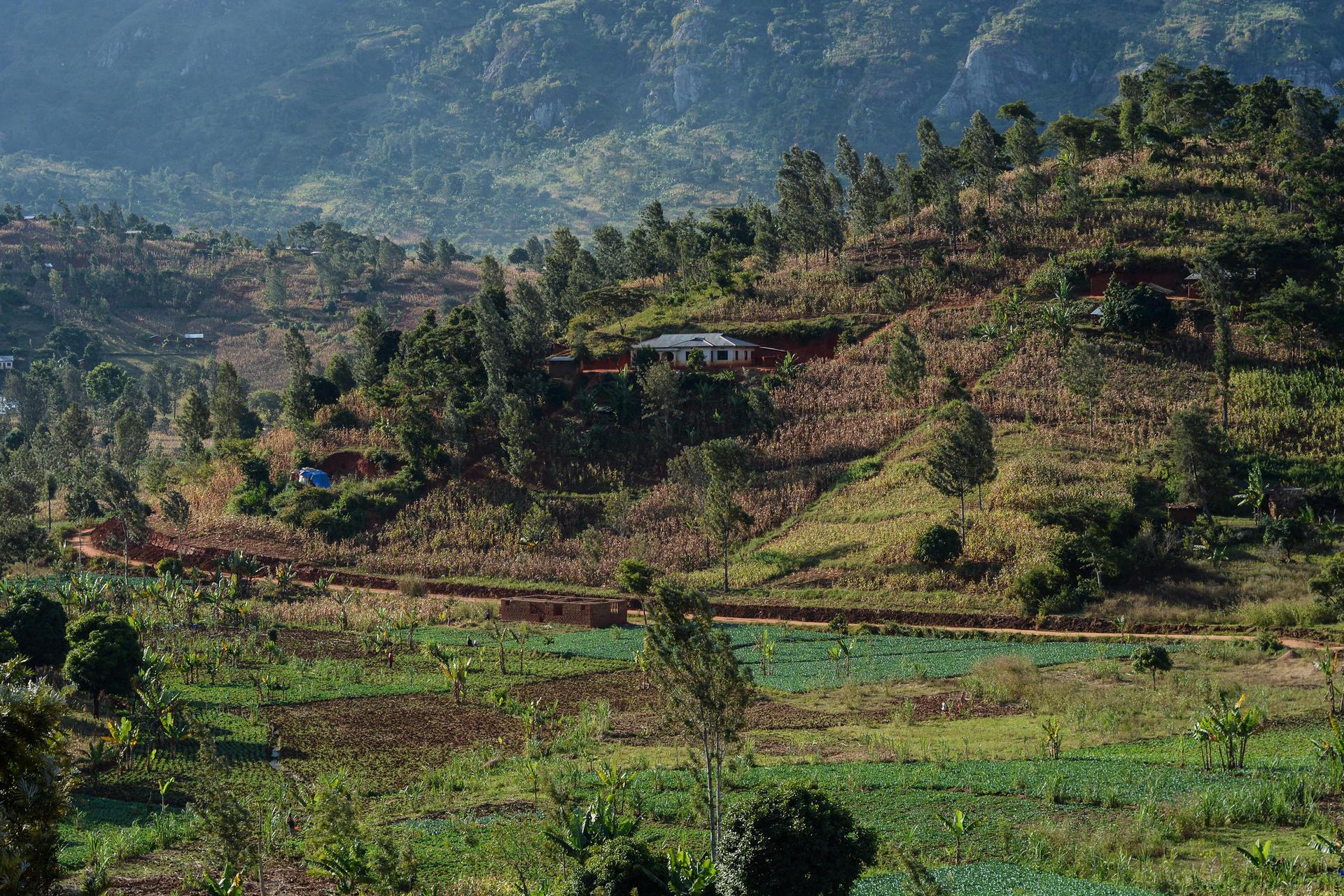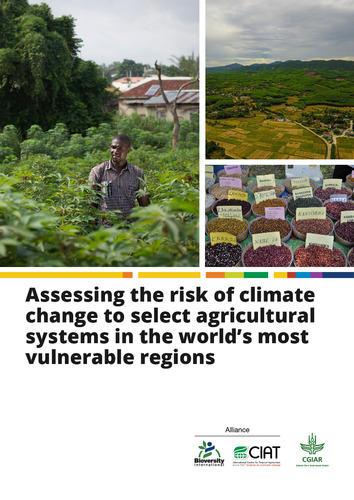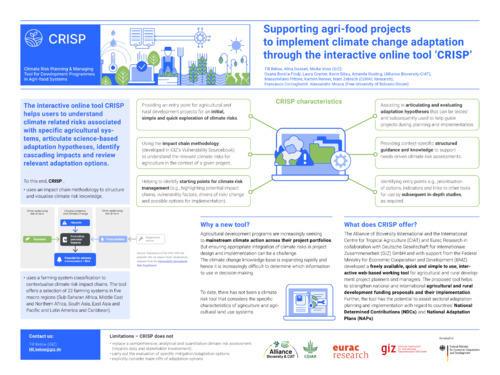Webinar: Knowledge Sharing and Practical Guidance on the use of the CRISP Tool

Background
Agricultural, land use and food system development practitioners are increasingly seeking to mainstream climate change adaptation into their sectoral policies, programs and projects. The Climate Risk Planning & Managing Tool for Development Programmes in Agri-Food Systems (CRISP) aims at supporting this endeavor. CRISP is a free, quick and simple to use, interactive web-based tool that guides users through a process to understand climate related risks of specific agricultural systems, articulate science-based adaptation hypotheses, identify cascading impacts and review relevant adaptation options.
CRISP has been developed in collaboration with the GIZ by the Alliance of Bioversity International, the International Centre for Tropical Agriculture (CIAT), and Eurac Research, commissioned by BMZ. Following up of the virtual launching event held in October 2023 attended by over 140 participants from a variety of institutions, including IISD, BMGF, IFPRI, World Bank, Catholic Relief Services, Free University of Bozen, Mitigation Action Facility, Welthungerhilfe, CIMMYT, Mercy Corps, and Adapt 40, we aim to organize a Knowledge Sharing Event focused on providing Practical Guidance on plausible CRISP applications to a wide range of practitioners and experts.
Register here (before June 17th, 2024)
Objectives of the webinar
The webinar has four objectives:
1. Practitioners have a comprehensive understanding of the CRISP tool and how it can be applied into the different phases of a project design or implementation, based on actual use cases.
2. The webinar provides the opportunity to take part in guided group sessions where participants will be able to test themselves how the CRISP tool can be applied at both the planning or the implementing phase of their projects.
3. They will acquire practical knowledge on how to develop climate risk impact chains and climate-related rationales, addressing questions such as:
- Which are the main climate-hazards, vulnerabilities, impacts and suitable adaptation practices/options relevant to the farming system where I plan to implement my agricultural development project?
- Are the adaptation options promoted by my current project responding to the main climate hazards, impacts and vulnerabilities affecting the farming system where I’m working? Are there additional suitable adaptation options that could be considered?
4. Inspire and strengthen practitioners‘capacities to use CRISP to incorporate a sound climate change adaptation rationale into agricultural, land use and food system development policies, programs and projects.
Targeted participants
The webinar should include:
-
Experts and practitioners from the agricultural, land use and food system development arena who are interested or could benefit from using CRISP.
-
Key stakeholders and development programs that may facilitate the strategic outreach to key project design and implementation teams from international agencies and the private sector.


